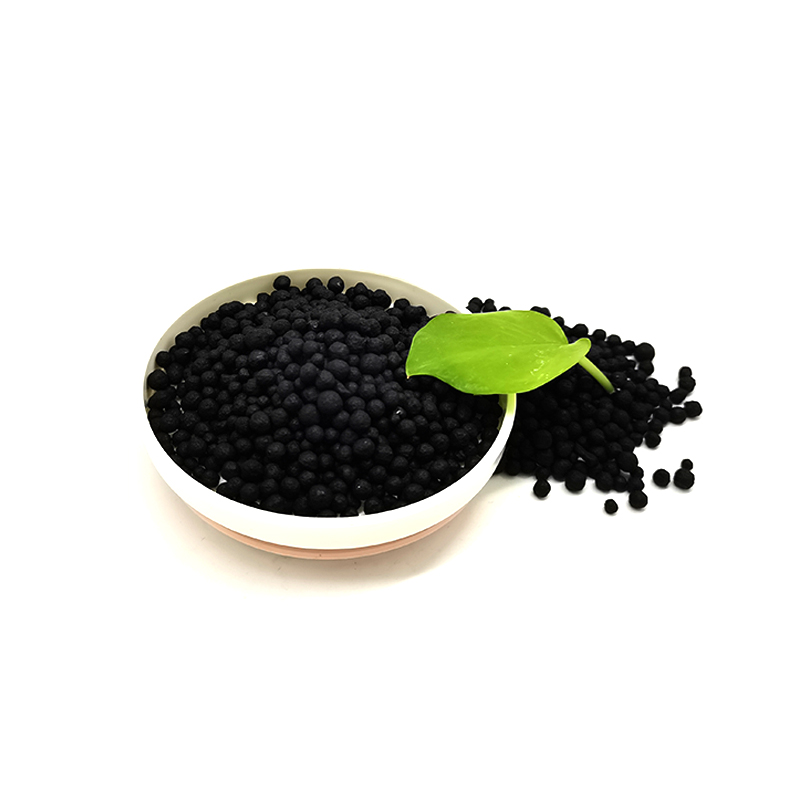Introduction to Phosphorus in Organic Fertilizer
Phosphorous is a vital nutrient which is very important in the growth of plants and affects the growth of their roots as well as energy transfer. In agriculture, organic fertilizer phosphorous plays a key role in maintaining soil health and attaining high quality crops with good yield.
Consequently, the organic sources of phosphorous are biological ones like bone meal, rock phosphate or composted manure instead of synthetic fertilizers. Most importantly these alternatives that are not just rich in phosphorous but also supply the soil with organic substance as well as useful minerals found in them thus leading to its improved fertility and generally healthy status.
Organic fertilization is becoming a trend towards sustainable agriculture practices that focus on long-term soil health, reduced chemical runoff and environmental impact improvement. “By utilizing organic phosphorus we support eco-systems’ wellbeing and reduce dependence on chemical inputs.” says Dr. Amy Newman who teaches Soil Science at Sustainable Agriculture Institute.
Therefore understanding the significance of phosphorus in crop production and sourcing it from organic substances is essential for farmers and agriculturists who want to improve their methods toward more sustainable future. It’s not only about productivity for immediate gain but also about soil conservation for posterity purposes.
Significance of Organic Phosphorus Fertilizer to Soil Health
To boost soil fertility, organic phosphorous fertilizers play an important role in altering the physical and biological attributes of the soil, making it more suitable for better crop growth. Here is how organic phosphorous contributes to soil health.
Improvement of Soil Fertility
Organic phosphorus sources like bone meal or composted animal manure slowly release phosphorus into the soil, which is less likely to be washed away when compared to synthetic ones. This slow release allows a continuous supply of nutrients to plants, thereby making them grow uniformly over time. According to Dr. Lucy M. Hartwell, who specializes in plant nutrition, “Organic phosphates do not only provide essential nutrient elements but also promote the improvement of organic matter content necessary for maintaining soil structure and fertility.”
Enhanced Microbial Activity and Soil Structure
By adding organic phosphorus fertilizers, organic matter within soils is increased, leading to improved aeration and water holding capacity, thus improving soil structure as well. This can be beneficial especially on sandy soils or those that are expectantly eroded frequently. Also, organic phosphates support the multiplication of microbes present in the soil, which are responsible for nutrient cycling, leading to the improvement of the status of life on earth as they break down complex molecules into simpler forms that can be used by plants.
Examples of Effective Organic Phosphorus Materials
- Rock Phosphate: A natural mineral ground into powder form. It releases phosphorus slowly and is best applied directly to the soil.
- Bone Meal: Made from steamed and crushed animal bones; bone meal contains high levels of calcium and phosphate that help in root development as well as blooms formation.
- Bat Guano: Bat guano has high amounts of phosphorus but also contains nitrogen plus several trace elements, thus making it an excellent all-around fertilizer.
These organic inputs not only offer available phosphorus but also build up long-term soil health, hence creating productive conditions for plant growth. The role of organic phosphorus in maintaining and improving soil health has become increasingly important with the changing agricultural practices as more farmers are realizing its importance in creating sustainable and productive agriculture systems.

Challenges and Considerations in Using Organic Fertilizer Phosphorus
All of us know that in the use of organic fertilizer phosphorus there are some issues and things to bear in mind.
Problems in Sourcing and Applying Organic Phosphorus
- Availability: It may not be easy to get high-quality organic phosphorus sources like bone meal or rock phosphate, which might instead be more expensive than synthetic ones in some regions.
- Inconsistent Quality: Depending on the processing method and origin, different organic phosphorus sources can contain varying levels of nutrient content. This means that it would be hard to provide adequate nutrients application rates for respective soils and crops.
Balancing Phosphorus Levels
- Risk of Overuse: Inorganic nutrients often do not have this problem as they can be formulated accurately, but this is not the case with organic fertilizers. Inappropriate application of organic phosphorus could cause environmental problems such as eutrophication, where excess nutrient flows into water bodies leading to excessive growth of algae that destroys aquatic ecosystems.
- Soil Health: Further misuse of phosphorous, even if from organic sources, may disrupt soil microbial communities or tie up with other minerals, rendering them unusable by plants; hence, it requires cautious management through regular soil testing for monitoring and adjustment to meet its requirement.
Integrating Organic Phosphorus with Other Nutrients
- Nutrient Synergy: In order to achieve optimum plant growth and soil health, phosphorus should be combined with essential minerals such as nitrogen and potassium. Therefore, farmers must consider their overall fertilization strategy so that they simultaneously cater for both their crops’ phosphorus needs while maintaining appropriate nutrient status within their soils.
- Holistic Management Practices: When using effective organic phosphates, it is necessary that a holistic approach to soil management is taken, including crop rotation, cover cropping, complementing compost material which serves as an additional phosphorus input by improving soil structure for better movement and availability of mineral nutrients, thus providing a substitute for inorganic sources whereby necessary nitrogen is supplied by organic materials.
Expert Insight
According to soil scientist Dr. Emily Robertson, “The adoption of organic phosphorus fertilizers is only one aspect of an entire sustainable agriculture approach. It must be integrated with other organic practices if it is to enhance soil health and crop productivity.”
Through the facing of these challenges and a careful handling of the application process regarding organic fertilizer phosphorus as such, farmers can make their farming more sustainable while at the same time protecting the environment. However, in order to overcome these obstacles effectively, the agricultural sector must keep on advancing itself.
Case Studies and Real-World Applications
To demonstrate the practicality of organic fertilizers phosphorus in sustainable agriculture and provide insights into its effectiveness and adaptability, here are several case studies and real-world applications that discuss the benefits and challenges associated with using organic phosphorus in different agricultural environments.
Midwestern Organic Corn Farm
- Overview: The farm transitioned from relying on synthetic phosphate to rock phosphate as its main source of phosphorus, complemented by consistent application of compost manure.
- Results: Over three years, the farm experienced a 20% increase in yield and improved soil health with higher organic matter content and increased microbial activity.
- Key Takeaway: This example illustrates that slow-release organic phosphorus sources can be beneficial for large-scale crop production over time. Steady nutrient release fosters continuous growth while mitigating environmental pollution risks.
Community Garden in Urban Setting
- Overview: An urban community garden implemented a fertilization program using bone meal and composted food waste to supply phosphorus among other nutrients to their vegetable plots.
- Results: The garden saw improved vegetable yields, and the natural approach to gardening increased community involvement.
- Key Takeaway: This scenario shows that even in smaller, more controlled spaces such as urban gardens, efficient use of organic phosphorus fertilizers can enhance plant health and foster community participation.
Real-World Application: Sustainable Vineyard Practices
- Overview: A vineyard in California adopted a holistic approach to soil management by incorporating green manures, cover crops, and sourcing their organic phosphorus externally.
- Results: Despite variations in climate and reduced use of synthetic fertilizers, grape quality remained consistent over the years.
- Key Takeaway: Integrating organic phosphorus with other sustainable practices such as revitalizing soils through cover cropping improves crop resilience to environmental stressors, indicating that organic fertilizers are practical in specialty crop-oriented agricultural practices.
These case studies demonstrate the practical applications of organic fertilizer phosphorus across different types of agriculture, from large-scale farms to small community gardens. Each example provides evidence of the positive impact on crop yield, soil health, and environmental sustainability.

Future Trends and Research in Organic Fertilizer Phosphorus
The future of organic fertilizer phosphorus in sustainable agriculture is promising, with research being carried out currently and emerging trends that are shaping its use of this essential element for crop production. Here are some of the most notable changes and what we should expect going forward.
Latest Research in Organic Phosphorus Fertilization
- Innovative Extraction Techniques: Current studies focus on more sustainable ways to extract phosphorus from natural sources, thereby reducing dependence on non-renewable rock phosphate. They are also exploring methods such as enhanced biological phosphorus recovery from waste streams, which are not only a more sustainable source but also reduce wastes.
- Enhanced Efficiency: Advances in biochemistry are helping to develop organic phosphorus fertilizers that plants can utilize more efficiently. This includes the use of mycorrhizal fungi and other soil microbes that enhance the uptake of phosphorus, resulting in minimal losses and overall plant improvement.
Predictions for Future Usage
- Increased Adoption: Increased awareness of the adverse environmental impacts caused by synthetic fertilizers is likely to push farmers towards organic sources of phosphorus. In addition, policy changes and incentives from governments desiring sustainable agricultural practices will support this change.
- Integration with Precision Agriculture: Technology will be key to the future direction taken by fertilizer application for phosphorus. Precise application using GPS-guided soil testing and drone monitoring may help ensure better placement rates of organic phosphorus, thus responding differentially to crop growth stages.
Impact of Regulations and Environmental Policies
- Regulatory Influence: There could be tighter regulations about the runoff of phosphorus, resulting in stringent controls over its application as a nutrient source through fertilizers. This regulatory scenario will most probably lead to the development and adoption of options for organics which do not have as much runoff or pollution potential.
- Focus on Soil Health: Current policies increasingly recognize the importance of maintaining or improving soil organic matter, microbial diversity, and other practices that promote sustainable agriculture through subsidies. This includes the use of organic phosphorus fertilizers.
Expert Commentary
According to Dr. Fiona Mitchell, a top agricultural researcher, “The trajectory of organic phosphorus is not just about replacing synthetic sources but enhancing the symbiosis between plants and soil systems. The future is in creating systems that are not only productive but also regenerative.”
These emerging trends and research directions suggest a robust future for organic fertilizer phosphorus, with innovations that promise to make its use more effective and environmentally sustainable. As the sector evolves, these breakthroughs will ensure the prudent usage of phosphorus as an essential nutrient that promotes ecological health while supporting crop production.
Conclusion
This presentation of phosphorus found in organic fertilizers in sustainable agriculture has revealed that this nutrient is vital for healthy soils and more robust farming ecosystems. The latest research findings and practical applications have provided some key benefits and challenges of the effective application of organic phosphorus.
Summary of Key Benefits and Challenges
- Benefits: By enhancing soil structure, increasing microbial activity, and providing a slow release of nutrients over time, using organic fertilizer phosphorus improves soil health. These advantages help promote sustainable agriculture through the reduction in synthetic chemicals application and reduced environmental impact.
- Challenges: Nevertheless, despite its numerous advantages, there are issues with inconsistency in nutrient contents as well as availability and cost when it comes to applying this type of phosphorus. Therefore, proper management planning is necessary to achieve the full benefits.
Final Thoughts on the Importance of Organic Phosphorus
The significance of organic phosphorus cannot be overstated in sustainable agriculture. It supports crops not only for their immediate vitality but also for long-term farm sustainability. As agriculture continues to change, it’s likely that the role played by organic phosphate will increasingly become central towards attaining productivity while ensuring environmental friendliness.
Encouragement for Continued Research and Best Practices
Ongoing research alongside best practice development is necessary if the adoption of organic fertilizer phosphorous is ever going to progress. They should join hands to solve challenges faced along with reaping maximum gains. Future success can only be achieved through embracing innovative techniques and technologies as well as having policies that support sustainable practices.
Farmers who implement these strategies can make their operations more sustainable and productive, thereby contributing towards a healthier planet. This journey towards total sustainability in agriculture is a long process which requires continuous efforts and wide collaboration, leading to notable achievements at length.
FAQs: What You Need To Know About Phosphorus In Organic Fertilizers
1. What is organic fertilizer phosphorus?
Answer: This form of phosphorus comes from organic sources like compost, bone meal and rock phosphate. It is necessary for plant growth, mostly in encouraging the formation of roots and promoting flowering as well as fruiting.
2. Why is phosphorus important in agriculture?
Answer: Sunlight conversion into food requires phosphorous for energy transfer within plants thereby affecting their development and vigor.
3. How does organic phosphorus benefit the soil?
Answer: Enhances the structure of the soil, increasing nutrient availability, fosters microbial life which in turn promotes healthy plant growth thus improving soil quality through organic phosphate.
4. Can organic phosphorus run off into waterways like synthetic fertilizers do?
Answer: Certainly, if overused just like any other synthetic source it could lead to runoff or eutrophication impacts caused by excessive use of manures containing excess amounts of nitrogen and/or phosphorus. However, its slower release rate often decreases the risks especially when properly applied.
5. How often should I apply organic phosphorus to my crops?
Answer: Amount applied depend on crop type, soil condition and specific type of organic fertilizer used but usually applied at planting stage may be reapplied during growing season if needed.
6. What are the signs of phosphorus deficiency in plants?
Answer: Signs that show that a plant have less than enough supply of P includes short size, dark green or purple leaves and overall reduced vigor.
References for organic fertilizer phosphorus:
- PubMed: This database provides access to biomedical literature from MEDLINE, life science journals, and online books. You can search for articles related to “organic fertilizer phosphorus” and find detailed studies on various aspects of organic fertilization.
- NCBI: A hub for biomedical and genomic information, NCBI hosts a range of databases and resources where you can find information on the scientific background and applied research regarding organic fertilizers.







